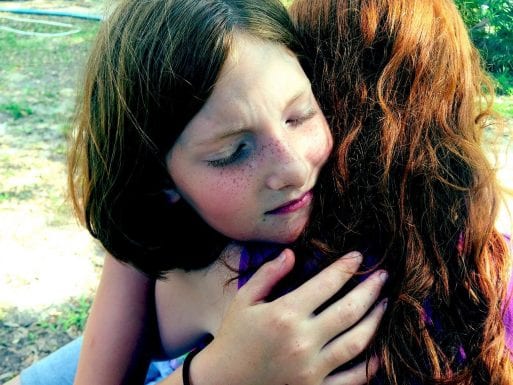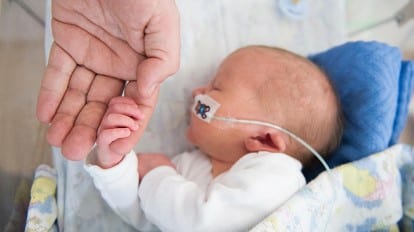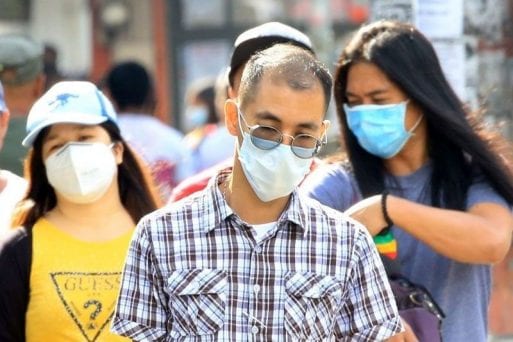 These days, the world is coping with an unprecedented amount of loss. Many of us have lost loved ones — some to the pandemic, some to causes unrelated to COVID-19. Others have lost their jobs and their livelihoods, forced to sit idly by as the future they strove to create through years of hard work falls apart in front of their eyes. In the wealthiest country in the world, millions of people are unemployed, thousands are standing in line at food banks, and healthcare workers are begging for needed supplies. And all the while, we are being inundated every day with reports of more illness and more deaths.
These days, the world is coping with an unprecedented amount of loss. Many of us have lost loved ones — some to the pandemic, some to causes unrelated to COVID-19. Others have lost their jobs and their livelihoods, forced to sit idly by as the future they strove to create through years of hard work falls apart in front of their eyes. In the wealthiest country in the world, millions of people are unemployed, thousands are standing in line at food banks, and healthcare workers are begging for needed supplies. And all the while, we are being inundated every day with reports of more illness and more deaths.
Most of us have never experienced anything like the tragedy that is unfolding all around us. Whether we have been personally impacted by the pandemic or not, we are all grieving in some way. And for the first time in modern history, we are being forced to do so in isolation, without the comfort of healing touch. And, according to author and lecturer Gregg Levoy, that loss of physical contact is making the work of grieving harder for us all.
The Power of Touch
Most of us know that touch is comforting. When we are suffering, feeling the arms of another person around us can lessen our pain and help us feel less alone. The touch of a hand or even sitting close to someone and feeling their presence can be enormously helpful when we are in the midst of grief.
What’s more, there is a great deal of science to back up what we feel. From the time we are born, we process touch in ways that help us function appropriately in social situations throughout our lives. Touch even has a beneficial effect on premature infants. In one study from 2010, preemies who received 15 minutes of moderate stroking three times per day for five days gained weight more quickly and were calmer and less easily stimulated than infants who were touched only for routine care.

Even pre-term infants benefit from physical touch.
Credit: whattoexpect.com
At the other end of the spectrum, people with Alzheimer’s disease have been shown to respond with greater body awareness and less agitation when they receive regular therapeutic massage. Even basketball players seem to benefit from being touched. According to a study conducted by Dacher Keltner of “Greater Good Magazine,” NBA players who touched each other more often on the court (fist-bumps, hugs, rump pats, etc.) won more games than their more physically reserved counterparts.
Obviously, touch is good for us, mentally and physically. And not being touched, especially during hard times, is going to take its toll.
How to Cope
As we all struggle to cope with the effects of the global pandemic, one thing that’s essential to coping with our sense of loss is to admit that we are grieving, says Levoy. It doesn’t matter how “insignificant” your personal losses are. Maybe all you’ve lost is the freedom to have dinner with friends and family, or to go to the grocery store without wearing a mask. That doesn’t change the fact that life has shifted in ways that none of us could have predicted as 2019 came to a close. It doesn’t minimize the collective trauma of seeing shell-shocked healthcare workers struggling to keep their patients alive, or watching in horror as the number of dead climbs each and every day. Nor does it make us feel any less alone.
But being with our feelings and acknowledging our pain rather than constantly distracting ourselves can help us begin to process what’s going on in the world and within ourselves.

To many, wearing masks in public is a constant reminder of what we have lost to COVID-19.
Credit: philstar.com
There are also ways to minimize the loss of physical contact that even people who live alone can use. According to Tiffany Field, Ph.D., the Director of Touch Research Institute at University of Miami’s Miller School of Medicine, exercise such as yoga, tai chi and even walking stimulates the touch receptors in our skin and mimics physical touch. Self-massage, even if it’s just rubbing your hands over your arms and legs (skip your face!) can have a similar effect.
And, of course, we should all be making use of technology to stay connected as best we can. Though seeing someone’s face on a screen and hearing their voice isn’t a substitute for physical contact, it can make us feel less alone, especially if we use that time to share how we really feel. And while that’s a big challenge in our grief-averse society, maybe living through this pandemic will help us all realize how much we need each other and teach us to reach out with gratitude and sincerity just a little more often than we did before.

 Losing Touch — Struggling with Grief in the Era of Social Distancing
Losing Touch — Struggling with Grief in the Era of Social Distancing



 “Help Me, Helen”
“Help Me, Helen”















